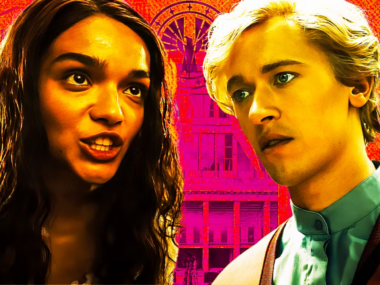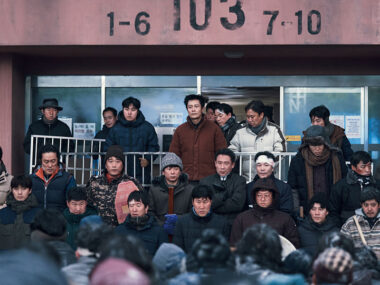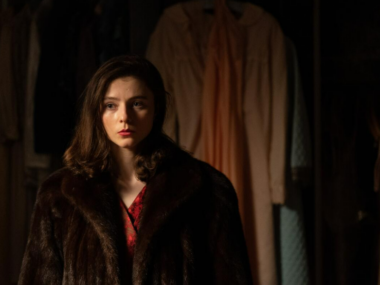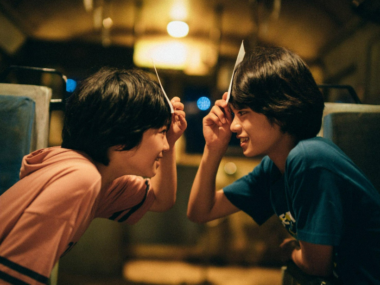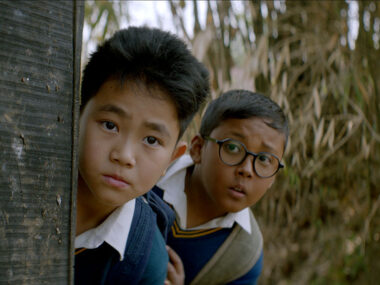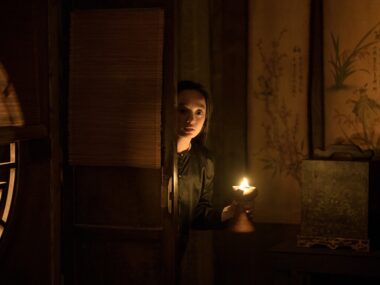Mumbai- the city of illusions. You have to believe the illusion or else you’ll go mad. In the darkness, you try to imagine light. But, can you?
Whether this movie is a docufiction or not, this one hit all the right chords. I guess that is probably the reason it straightaway won the ‘Grand Prix’ at Cannes, despite India competing for the prize for the first time in 30 years.
Anchored by the directorship of Payal Kapadia, ‘All We Imagine as Light’ navigates the lives of women in the bustling city of Mumbai. While some live vicariously, revelling in the crowd and the noisy aftermath, the two lead women in this story- two Malayali-origin nurses with widely dissimilar personalities, attempt to embrace the vividity of Mumbai for the better part of the movie.

It concerns those who have withdrawn inwardly because they have grown accustomed to the isolation and alienation that come with relocating from a small village to a large metropolis. It also discusses how women in India continue to live in anonymity because patriarchal attitudes shape their identities and deny them the freedom to pursue their own interests.
Prabha (Kani Kusruti) is a nurse in a local hospital, curing patients, and teaching aspiring nurses, while simultaneously maintaining a long-distance relationship with her husband who is in Germany. While evading her mother’s calls about arranging marriages with acceptable bachelors, Anu (Divya Prabha), a nurse of lower rank, is blatantly independent and covertly dating a man of a different religion. Anu and Prabha are roommates who are so close that they treat one another like sisters.
While Prabha is reserved, traditional and hardworking, Anu is the definition of the carefree and wild attitudes often encompassed by today’s youth. Together, their lives intertwine at work and home, making it an interesting watch. The profound loneliness that women in such a society experience is revealed as the story progresses. Prabha initially appears to be against Anu’s relationship, especially due to the incessant gossip at their workplace. But as time goes on, Prabha’s personal encounters influence her viewpoints and contribute to her efforts to embrace modernity.

The realistic depiction of the two nurses, combined with their assistance to Prabha’s widowed friend who is facing an inevitable eviction, helps to convey the range of emotions that humanity experiences. Additionally, Prabha’s co-worker is in love with her and willing to continue living in the city he hates, just for her. But, Prabha, being a stickler for correctness remains steadfast in her beliefs of commitment. Anu, on the other hand, battles the constant pressure to adhere to societal rules and defies them unforgivably each time.
The performances by Kani Kusruti and Divya Prabha are so convincingly realistic and haunting, that had I not been watching it on a screen, I would have thought I was actually walking through the streets of Mumbai. The rawness in the lighting, minimum make-up and the unvarnished realism in the cinematography enhance their on-screen personalities as they converse in Malayalam, Hindi and Marathi. Right down to the local dialect exchange during their conversations with the fisherwomen.
The movie had several subliminal messages. Like when Anu tells Prabha, “How could you marry a complete stranger? I don’t think I could ever do that!”, you know she means it for real. In another shot, Prabha advises Anu, “You might think you know someone, but they can also become strangers”, which is an honest truth in today’s world.
Kapadia paints a quiet portrait of women embroiled in an existence of continuous cacophony, unable to break through the hurdles of their discordant lifestyle. Through love, loneliness, lust and loss, these women sail through the turbulence that is called life.

| Release Date: 2024-05-23 (Cannes) 2024-09-11 (TIFF) | Cinematography: Ranabir Das |
| Cast: Kani Kusruti, Divya Prabha, Chhaya Kadam, Hridhu Haroon | Producers: Thomas Hakim, Julien Graff |
| Director: Payal Kapadia | Screenplay: Payal Kapadia |
| Runtime: 115 minutes | Genres: Narrative, Drama |

